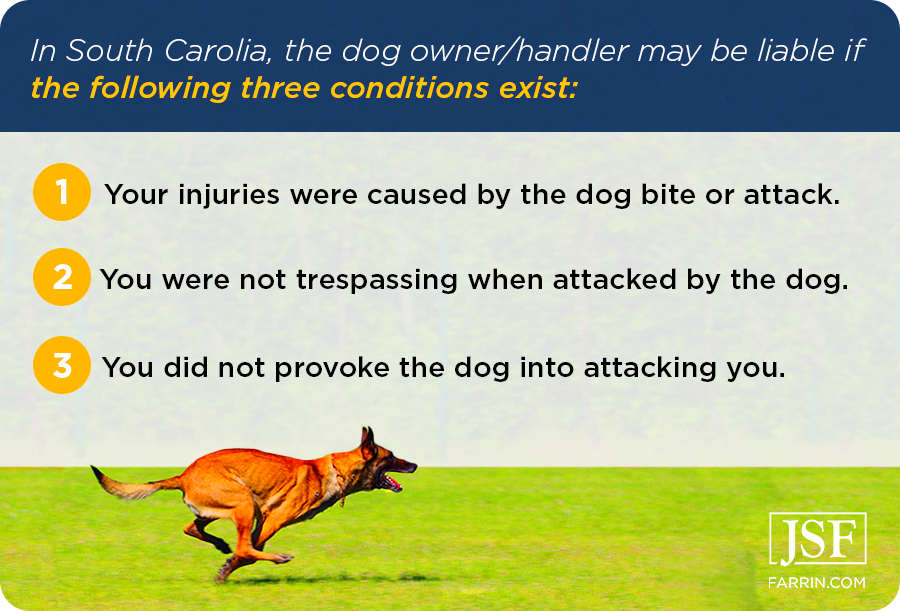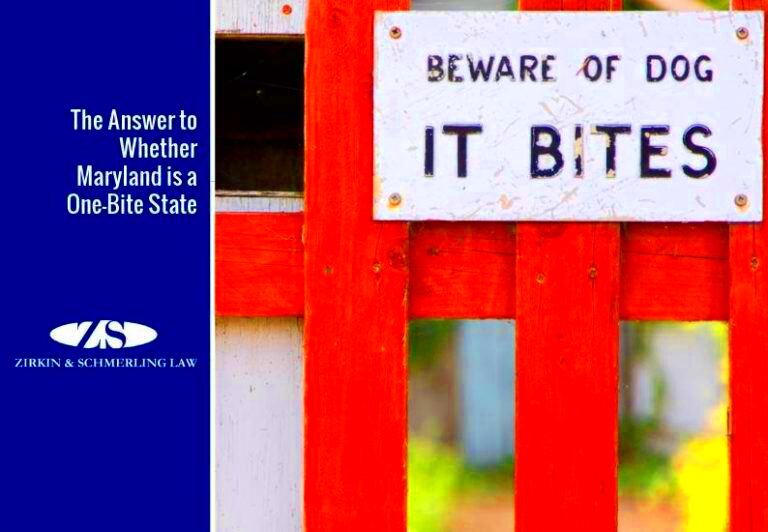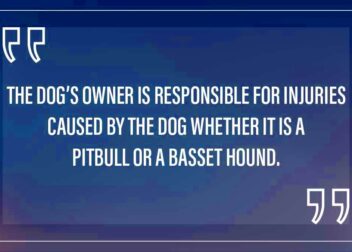Maryland Dog Bite Laws and How to Seek Compensation
Maryland has specific laws in place to handle dog bite cases. These laws aim to protect victims and outline the responsibilities of dog owners. When a dog bites someone, various factors determine the owner’s liability, and understanding these laws can help victims seek the compensation they deserve. Maryland operates under a strict liability rule for dog bites, meaning owners are generally responsible for their dog’s actions, regardless of the dog’s past behavior.
What Constitutes a Dog Bite in Maryland

In Maryland, a dog bite is defined as any instance where a dog injures a person by biting them. This definition is not limited to actual bites; it can also include situations where a dog jumps on someone, causing harm. Here are some important points to consider:
- Physical Contact: The injury must result from direct physical contact with the dog.
- Intent: The dog’s intention is irrelevant; if a bite occurs, it qualifies as a dog bite incident.
- Location: Dog bites can happen anywhere—public places, private property, or even during petting.
It’s important to document any injuries, as this evidence will play a crucial role in legal proceedings.
Liability for Dog Bites in Maryland

Maryland’s laws make dog owners liable for injuries caused by their pets under most circumstances. However, there are a few exceptions. Here’s how liability is typically determined:
- Strict Liability: Owners are liable if their dog bites someone without provocation.
- Provocation: If the victim provoked the dog (for instance, by teasing), the owner may not be held responsible.
- Leash Laws: If the dog was on a leash and the owner was following local laws, this could affect liability.
Understanding these aspects can help victims navigate their cases more effectively. Consulting a legal professional is advisable to assess individual situations.
Steps to Take After a Dog Bite Incident
Experiencing a dog bite can be traumatic and confusing. Knowing what to do immediately after the incident can make a significant difference in your recovery and any potential legal action. Here’s a step-by-step guide to help you through this challenging time:
- Ensure Your Safety: Move to a safe location to avoid further harm from the dog.
- Seek Medical Attention: Even if the injuries seem minor, getting checked by a healthcare professional is crucial. Document all medical visits.
- Report the Incident: Contact animal control or local authorities to report the bite. This step helps in tracking the dog’s history.
- Gather Information: Collect details about the dog owner, the dog itself, and any witnesses present during the incident.
- Take Photos: Capture images of your injuries and the location where the incident occurred.
Taking these steps can help you protect your rights and ensure a smoother process if you decide to pursue compensation.
How to Gather Evidence for Your Case
Building a strong case after a dog bite requires thorough evidence collection. Here are some essential pieces of evidence you should gather:
- Medical Records: Keep all documents related to your injuries, treatments, and any follow-up visits.
- Witness Statements: Obtain contact information from anyone who witnessed the incident and ask for their accounts.
- Dog Owner Information: Record the name, address, and insurance details of the dog owner.
- Photos and Videos: Use your phone to take pictures or videos of the scene, the dog, and your injuries.
- Police Report: If law enforcement responded, request a copy of the incident report.
Having a comprehensive collection of evidence can significantly impact the outcome of your case.
Filing a Claim for Compensation
If you’ve been bitten by a dog and have gathered enough evidence, you may consider filing a claim for compensation. Here’s how to navigate this process:
- Consult a Lawyer: Speaking with a legal professional who specializes in personal injury can provide valuable guidance.
- Determine the Right Insurance: Identify whether the dog owner’s homeowner’s insurance or renter’s insurance covers the claim.
- Prepare Your Claim: Compile all your evidence, including medical records, witness statements, and any relevant documentation.
- File the Claim: Submit your claim to the appropriate insurance company, ensuring you follow their procedures accurately.
- Negotiate: Be prepared for discussions with the insurance adjuster. They may offer a settlement that you can negotiate based on your evidence.
Filing a claim can be a complex process, but understanding these steps can help you achieve a fair resolution.
Possible Damages You Can Claim
After a dog bite, you may be entitled to various types of damages to compensate for your injuries and suffering. Understanding the different categories of damages can help you ensure you receive fair compensation. Here are some common damages you can claim:
- Medical Expenses: This includes costs for hospital visits, surgeries, medications, physical therapy, and any ongoing treatment.
- Pain and Suffering: Compensation for the physical pain and emotional distress you experience as a result of the bite.
- Lost Wages: If your injuries prevent you from working, you can claim compensation for lost income during your recovery period.
- Property Damage: If any personal belongings were damaged during the incident, you could include those in your claim.
- Emotional Distress: In some cases, victims may experience anxiety, depression, or PTSD after a dog bite, which can be factored into compensation.
Each case is unique, and the specific damages will depend on your circumstances. It’s essential to document everything related to your injuries to support your claim effectively.
Frequently Asked Questions about Dog Bite Laws
When dealing with dog bite incidents, many questions can arise. Here are some frequently asked questions that can help clarify common concerns:
- What should I do immediately after a dog bite? Seek medical attention, report the incident, and gather evidence.
- Can I file a claim if the dog has never bitten anyone before? Yes, dog owners are typically responsible for their dog’s actions, regardless of past behavior.
- What if the dog was on a leash? Being on a leash does not absolve the owner of responsibility if their dog bites someone.
- How long do I have to file a claim? Maryland has a three-year statute of limitations for personal injury claims, including dog bites.
- Will I need to go to court? Many cases settle before going to court, but if a fair settlement isn’t reached, you may need to file a lawsuit.
These answers can guide you through the process, but consulting a legal professional for personalized advice is always wise.
Conclusion and Next Steps
Dealing with a dog bite incident can be overwhelming, but understanding your rights and the legal process can help you navigate this challenging time. Here are some key takeaways and next steps to consider:
- Document Everything: Keep detailed records of your injuries, treatments, and any interactions related to the incident.
- Consult a Lawyer: A legal expert can provide invaluable support and help you pursue the compensation you deserve.
- Stay Informed: Understand Maryland’s dog bite laws and your rights as a victim.
- Be Prepared to Negotiate: Compensation discussions may take time, so stay patient and persistent.
Taking these steps can significantly affect the outcome of your case. Remember, you don’t have to face this alone—reach out for help and take control of your situation.


